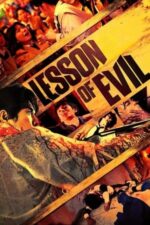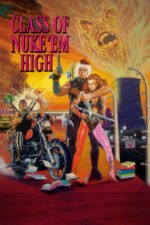The Echoes of Silence: Cinema Confronting School Shootings and Their Aftermath
It’s a topic we can't seem to escape, unfortunately – school shootings. And while it feels almost exploitative to discuss them through the lens of entertainment, cinema has repeatedly attempted to grapple with this uniquely American tragedy, not for sensationalism, but perhaps in an effort to understand, to mourn, and ultimately, to find some semblance of meaning amidst unimaginable loss. It's a difficult space to navigate, and these films rarely offer easy answers.
What strikes me about the films listed is how varied their approaches are. They aren’t simply about school shootings; they explore the ripple effects – the grief, the trauma, the societal failings that allow such events to occur. "Newtown," for example, isn't a dramatization of the event itself, but a deeply moving portrait of a community shattered and then slowly, painstakingly pieced back together. It’s less about what happened and more about how people survived – how they found strength in shared sorrow and rebuilt their lives. Watching it felt like witnessing an act of collective healing, a quiet defiance against despair.
Then you have films like "American Gun," which takes a broader perspective, weaving together seemingly disparate narratives to illustrate the pervasive nature of gun violence in American life. It’s not just about school shootings; it's about the culture that enables them. It’s a sobering reminder that these events don’t exist in a vacuum. Similarly, "And Then I Go" offers a glimpse into the pre-cursors to such tragedy – the alienation and simmering resentment of teenagers feeling utterly lost and unheard. It doesn't excuse violence, but it does attempt to understand the conditions that might breed it.
The legal drama “The Truth vs. Alex Jones” is particularly chilling in its exploration of how misinformation can fuel denial and inflict further pain on victims’ families. It highlights a disturbing reality: even after tragedy, the fight for truth continues, often against those who seek to exploit grief for their own gain.
And then there's "White Rabbit," which takes us into the psychological depths of trauma, suggesting that violence can be born from deeply rooted pain and unresolved childhood experiences. It’s a challenging film, demanding empathy even as it depicts disturbing behavior – a reminder that mental health struggles are often intertwined with acts of violence.
These films aren't easy viewing. They demand engagement, introspection, and a willingness to confront uncomfortable truths. But they also offer something valuable: a space for dialogue, for remembrance, and perhaps, just maybe, a glimmer of hope that we can learn from these tragedies and work towards a future where such events are no longer a reality.
What do you think? Have you seen any of these films, or others that explore this difficult subject matter in compelling ways?







































